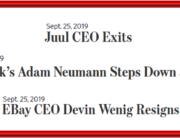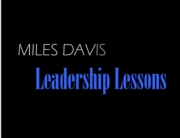Lessons Found for businesses can truly materialize from unexpected sources. For instance, a valuable Lesson Found on business goals can be gleaned from a podcast contrasting two approaches to teaching children how to read.
These two instructional approaches are “phonics” and “whole language”. Phonics’ goal is “to teach students the most common sound-spelling relationships so that they can decode, or sound out, words.” The goal of the whole language method is to “comprehend text”. The difference between these goals results in very distinctive teaching strategies. Phonics utilizes an explicit strategy of teaching students how to sound out words. Whole language uses an implicit strategy relying on cues, such as context, sentence type or graphics, to predict the word. Put another way, phonics’ goal leads to an accurate decoding of the word while whole language’s goal accepts that “if the sentence [makes] sense, the reader must be getting the words right, or right enough.”
Just as their goals drive the objectives for these approaches to reading instruction, the goals a business designates can mean the difference between being on-target, totally off-target or just close “enough”. A good example is the contrast between the goals of selling a company or transitioning it to the next generation. Common objectives for selling within 3-5 years are to quickly reduce expenses and maximize sales by increasing the customer base. Transitioning to a family member necessitates long-term objectives such as developing a loyal customer base and implementing a training plan to prepare the next generation for overreaching and leadership. (These goals do share some common objectives such as alleviating over-reliance on the owner by building a formal system of organizational control.)
A related Lesson Found is the difference between goals and objectives. A Forbes article provides concise definitions for each:
- “A goal is a broad primary outcome.”
- “An objective is a measurable step you take” towards achieving the goal.
When asked about their goals, many owners will state objectives such as “to make a million dollars” or “to own five brick-and-mortar locations”. These responses limit the owner’s options. For instance, would the owner focusing on brick-and-mortar turn down the opportunity to work with the best ecommerce/SEO expert in the area? Likely that owner’s true goal is related to higher sales which could also be accomplished if they partnered with the right person such as this expert.
Of course, the most important thing is to take the time to spell-out your goals and then develop a realistic plan for achieving them which includes objectives to identify if you are on the right track.
Email or call (717-439-6254) to schedule your free initial consultation to discuss and document your company’s goals.















































































